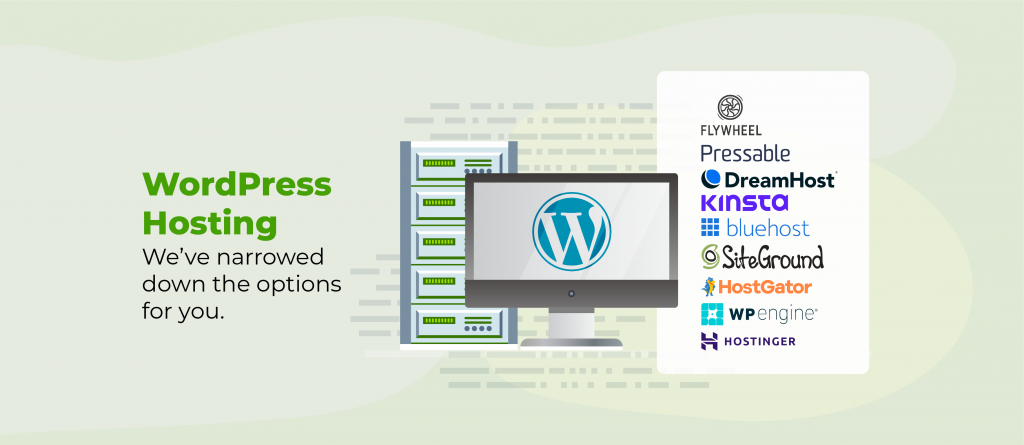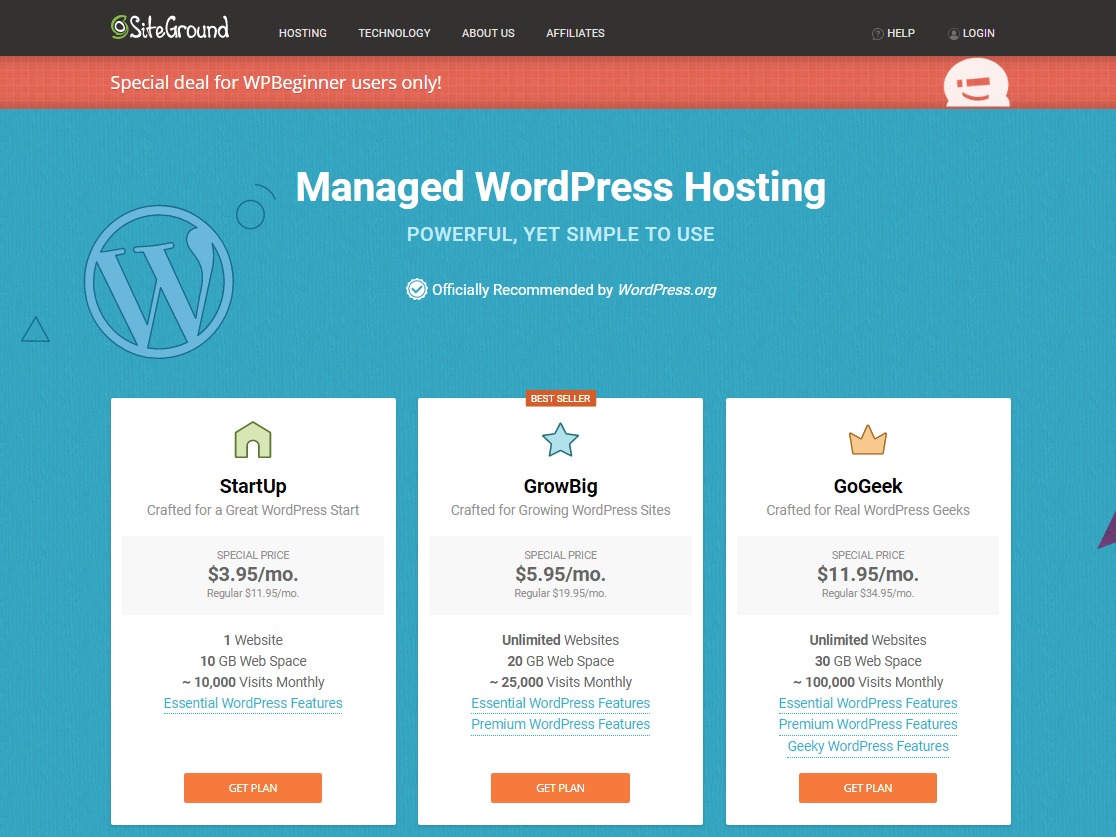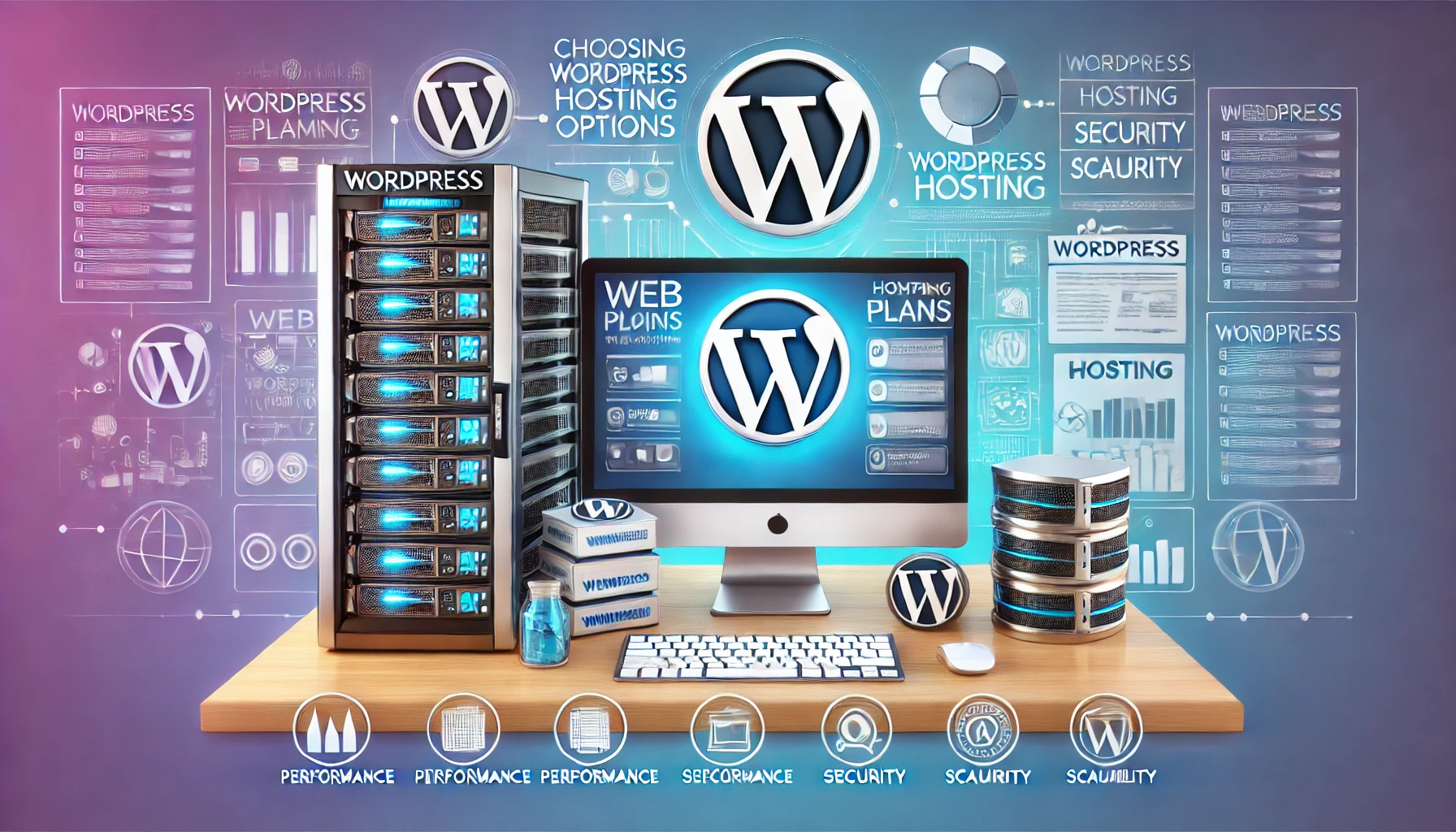WordPress powers millions of websites worldwide. Choosing the right hosting is crucial.
When building a WordPress site, hosting options matter. The right choice affects speed, security, and performance. Some hosts cater specifically to WordPress, offering optimized services. Others provide general hosting with WordPress compatibility. This guide explores various WordPress hosting options. You’ll learn about shared hosting, managed hosting, VPS, and dedicated servers.
Understanding these options helps you pick the best one for your needs. From beginners to advanced users, there’s a hosting solution for everyone. Stay tuned as we delve into each option’s features and benefits. Your WordPress site deserves the best foundation. Let’s find it together.
Introduction To WordPress Hosting
Choosing the right hosting for your WordPress site is crucial. It impacts the performance, security, and scalability of your website. Let’s dive into the essentials of WordPress hosting.
Importance Of Hosting
Good hosting ensures your site loads quickly. Visitors don’t wait. They move on. Slow sites lose traffic and rankings. Hosting also affects security. A secure host protects your data. It keeps hackers at bay. Uptime is another critical factor. Reliable hosting means your site is always available. Downtime can hurt your reputation and revenue.
WordPress-specific Needs
WordPress has unique requirements. It needs a host that can handle its specific demands. These include PHP, MySQL, and HTTPS support. Efficient caching mechanisms are also vital. They speed up your site. Managed WordPress hosting is a good option. It takes care of updates, backups, and security. This lets you focus on content and growth.
Types Of WordPress Hosting
Choosing the right WordPress hosting can significantly impact your website’s performance. There are various types of hosting to consider, each with its own advantages and disadvantages. Understanding these options will help you make an informed decision for your site.
Shared Hosting
Shared hosting is the most cost-effective option. Multiple websites share the same server resources. It is ideal for small blogs or personal websites. Shared hosting is easy to set up and manage. Yet, shared resources can lead to slower load times during peak traffic.
Vps Hosting
VPS (Virtual Private Server) hosting offers more control and flexibility. Each site has its own virtual space on a server. This means better performance and stability. VPS hosting is suitable for growing websites with moderate traffic. You get dedicated resources without the high cost of a dedicated server.
Dedicated Hosting
Dedicated hosting provides an entire server for your website. This option offers the best performance and security. It is ideal for large businesses with high traffic. Dedicated hosting allows for complete control over the server. But it comes with a higher price tag and requires technical expertise.
Managed WordPress hosting is designed specifically for WordPress websites. It offers automatic updates, security features, and expert support. This option is perfect for those who want a hassle-free experience. Managed hosting ensures your site runs smoothly and efficiently. It is slightly more expensive but worth the investment for peace of mind.
Shared Hosting For WordPress
Shared hosting is a popular choice for WordPress beginners. It is cost-effective and easy to set up. Many users share the same server resources. This keeps costs low. Shared hosting providers often offer one-click WordPress installations.
Pros And Cons
Shared hosting has several benefits. It is affordable. It is easy to manage. Customer support is usually available. Many providers offer tutorials and guides.
But there are some downsides. Performance can be inconsistent. High traffic on other sites can slow yours down. Limited resources may cause issues as your site grows. Security can be a concern with shared servers.
Best Use Cases
Shared hosting is ideal for small blogs. It suits personal websites. Small business sites can benefit too. It is perfect for users with limited budgets. If you expect low to moderate traffic, shared hosting works well.
Overall, shared hosting is a good start. It allows you to launch your WordPress site quickly and affordably.

Credit: getshieldsecurity.com
Vps Hosting For WordPress
For WordPress sites needing more power and control, VPS hosting is a strong option. VPS, or Virtual Private Server, provides a dedicated environment for your website. This means better performance and security compared to shared hosting.
Advantages Of Vps
VPS hosting has several key benefits:
- Dedicated Resources: With VPS, you get dedicated CPU, RAM, and storage.
- Better Performance: Your website runs faster and more reliably.
- Enhanced Security: VPS offers better protection against cyber threats.
- Customization: You can configure your server settings to suit your needs.
- Scalability: Easily upgrade your resources as your site grows.
These advantages make VPS a preferred choice for many WordPress users.
When To Choose Vps
Consider VPS hosting in the following situations:
- High Traffic: Your site gets heavy traffic and needs more resources.
- Resource-Intensive Plugins: You use plugins that need more server power.
- Security Concerns: You handle sensitive data and need enhanced security.
- Custom Configurations: You want to customize server settings.
- Growth Plans: You expect your site to grow and need scalability.
Choosing VPS hosting ensures your WordPress site performs well. It also offers the flexibility to handle future growth.
Dedicated Hosting For WordPress
Choosing the right hosting option for your WordPress site is vital. Dedicated hosting offers powerful features for those needing maximum performance. It means your website runs on its own server. You don’t share resources with anyone else. This setup ensures faster load times and higher security.
Benefits Of Dedicated Servers
Dedicated servers offer several key benefits:
- High Performance: Your site gets all the server’s resources. No sharing with other sites.
- Enhanced Security: More control over security settings. Reduced risk of breaches.
- Customization: Full control over server settings. Tailor it to your needs.
- Reliability: Minimal downtime. Your site stays up and running.
- Scalability: Easily upgrade resources. Handle more traffic as your site grows.
Ideal Scenarios For Dedicated Hosting
Dedicated hosting is best for:
- High-Traffic Websites: Sites with many visitors need more resources.
- E-commerce Sites: Online stores need high security and speed.
- Resource-Intensive Applications: Apps needing lots of CPU and RAM.
- Custom Software: Using custom apps or configurations.
- Data-Sensitive Sites: Sites handling sensitive data need extra security.
Here’s a quick comparison of shared vs dedicated hosting:
| Feature | Shared Hosting | Dedicated Hosting |
|---|---|---|
| Resource Sharing | Shared with others | Exclusive use |
| Performance | Variable | High and consistent |
| Security | Basic | Advanced |
| Customization | Limited | Full control |
Managed WordPress Hosting
For those who want a hassle-free WordPress experience, Managed WordPress Hosting is the perfect solution. It allows you to focus on creating content while the host takes care of technical aspects. From automatic updates to enhanced security, managed hosting offers a range of benefits.
Features Of Managed Hosting
Managed WordPress Hosting comes with several features designed to make your life easier:
- Automatic Updates: The host handles WordPress updates for you.
- Enhanced Security: Your site is protected with advanced security measures.
- Daily Backups: Your data is backed up daily to prevent data loss.
- Optimized Performance: Servers are optimized specifically for WordPress.
- Expert Support: Access to WordPress experts for technical support.
These features ensure your website runs smoothly without requiring much technical know-how.
Top Managed Hosting Providers
Here are some of the top providers offering managed WordPress hosting:
| Provider | Features | Price Range |
|---|---|---|
| WP Engine | Automatic updates, advanced security, expert support | $30 – $290/month |
| SiteGround | Daily backups, optimized performance, expert support | $6.99 – $14.99/month |
| Kinsta | Automatic updates, enhanced security, daily backups | $30 – $1,500/month |
| Bluehost | Optimized performance, expert support, daily backups | $19.95 – $49.95/month |
Choosing the right provider depends on your specific needs and budget. Each provider offers unique benefits, so consider what features are most important to you.
Comparing Hosting Providers
Choosing the right WordPress hosting provider can feel overwhelming. Each provider offers different features and benefits. To help you decide, we compare key aspects of popular hosting providers.
Performance Metrics
Performance is crucial for any website. Look at server speed, uptime, and load time. These metrics affect user experience and SEO. A good host should offer at least 99.9% uptime. Faster load times lead to better user engagement.
Customer Support
Reliable customer support can save you time and stress. Check for 24/7 support availability. Read reviews to gauge the quality of their support. Live chat and phone support are often quicker than email.
Pricing Plans
Pricing varies widely among hosting providers. Look for transparent pricing. Avoid hidden fees. Compare the features included in each plan. Some hosts offer promotional rates for the first year. Consider the cost of renewal too.
Choosing The Right Hosting Plan
Choosing the right WordPress hosting plan can make a big difference. The right plan can improve your website’s performance. It can also help you manage traffic better. But with many options, how do you decide? Let’s break it down into simple steps.
Assessing Your Needs
First, think about your website’s purpose. Is it a blog, an online store, or a business site? Different websites have different needs. A small blog may need less power. An online store with many products needs more resources.
Consider your traffic. Do you expect a few visitors or thousands? More visitors will need more bandwidth. Also, think about the content. Images and videos need more storage space. Make a list of your needs. This helps you choose the right plan.
Scalability Considerations
Scalability is key. Your website will grow. You might start small, but aim big. Choose a plan that can grow with you. Look for options to upgrade easily. This saves time and hassle later.
Check if the hosting provider supports scaling. Some plans allow quick upgrades. This means you can handle more traffic without downtime. A flexible plan is a good choice.
Budget Constraints
Budget is important. Hosting plans range from cheap to expensive. Set a budget before you start looking. Remember, cheap plans may lack features. But you don’t need the most expensive plan either.
Look for a balance. Compare different plans. See what features you get for the price. Some plans offer discounts for long-term commitments. Others might have hidden fees. Read the fine print. Choose a plan that fits your budget and meets your needs.
Migrating To A New Host
Are you considering migrating to a new host for your WordPress site? This can be a daunting task, but it doesn’t have to be. With the right steps and a bit of patience, you can ensure a smooth transition. In this section, we will explore the migration process, common challenges, and tips for a smooth transition.
Migration Process
The migration process involves several steps. Below is a simple guide to help you:
- Backup Your Site: Always start with a full backup.
- Choose a New Host: Select a hosting provider that meets your needs.
- Export Your Data: Use a plugin or manual method to export your site data.
- Upload to New Host: Import your data to the new host.
- Update DNS Settings: Point your domain to the new host’s servers.
Common Challenges
During the migration, you might face some challenges:
- Downtime: Your site might experience temporary downtime.
- Data Loss: There’s a risk of losing some data during the transfer.
- Compatibility Issues: Some themes or plugins may not work properly with the new host.
Tips For Smooth Transition
To ensure a smooth transition, consider these tips:
- Test Before Going Live: Check your site on the new host before updating DNS settings.
- Use a Staging Site: A staging environment can help you catch issues before they affect your live site.
- Seek Professional Help: If you’re not confident, hire a professional to handle the migration.
By following these steps and tips, you can make your site migration as seamless as possible. Remember, preparation is key to a successful move.

Credit: tectera.com

Credit: www.cnet.com
Frequently Asked Questions
What Is WordPress Hosting?
WordPress hosting is a type of web hosting optimized specifically for WordPress sites. It includes features like one-click WordPress installs and automatic updates.
Why Choose Managed WordPress Hosting?
Managed WordPress hosting offers optimized performance, security, and support. It handles maintenance tasks like updates, backups, and caching for you.
How Is Shared Hosting Different?
Shared hosting involves multiple websites sharing one server. It is cost-effective but can be slower and less secure than dedicated options.
What Are The Benefits Of Vps Hosting?
VPS hosting offers more resources, better performance, and greater control. It’s ideal for growing websites needing more stability and customization.
Conclusion
Choosing the right WordPress hosting is crucial. It impacts your site’s speed and reliability. Shared hosting is budget-friendly. VPS hosting offers more control. Dedicated hosting provides the best performance. Cloud hosting scales with your needs. Managed WordPress hosting simplifies maintenance.
Match hosting type with your site’s needs. Think about traffic, budget, and technical skills. Make an informed decision. Your website’s success depends on it. Happy hosting!





